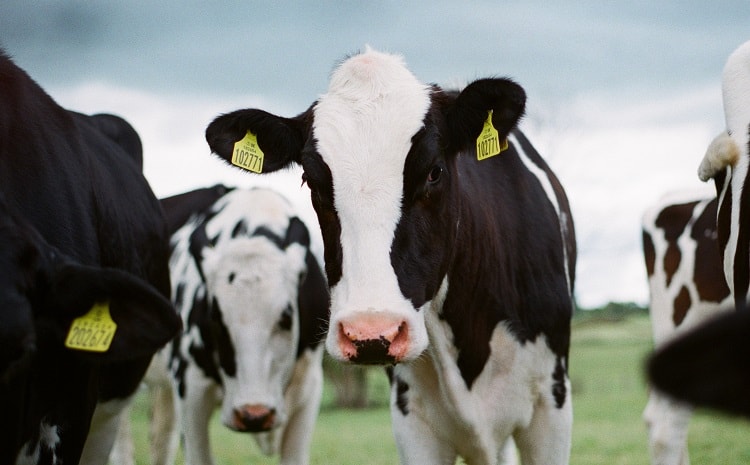Henry Dimbleby: If restaurants do just one sustainable thing: help guests eat less meat. By Katherine Price, Sustainability Editor, H&C News.

Government food tsar Henry Dimbleby says that if he could ask the struggling hospitality sector to do just one thing towards making the food system more sustainable, it would be to support a reduction in meat consumption.

“This is probably the most difficult time ever for hospitality businesses… it is an absolute nightmare,” says Dimbleby, acknowledging the crushing magnitude of pressures on the sector, particularly severe staffing shortages and soaring energy and food costs.
“It’s a very difficult time for businesses to do anything except think about how to get through this. But if there’s just one thing they could do in this very difficult time, it would be to help their customers eat a bit less meat.”
The National Food Strategy was published last summer, spearheaded by Dimbleby, the co-founder of Leon and the Sustainable Restaurant Association who also co-authored the School Food Plan with John Vincent in 2014. The National Food Strategy attempted to provide a roadmap addressing both the human and climate cost of our food system.
The government published its response in June. It committed to halve childhood obesity by 2030 by “increasing the proportion of healthier food sold” and reduce the environmental impacts of the food system “in line with our net zero commitments and biodiversity targets”.
It said it would combat greenwashing; look at introducing a Government Buying Standards target 50% of food expenditure to go towards local produce or food of a higher environmental production standard; and consult on mandatory public reporting on health and sustainability.
Campaign group Global Feedback is taking legal action against the government for not committing to reducing meat and dairy consumption; while Greenpeace has launched a petition signed by more than 68,000 people calling on the government to target a 70% reduction in meat and dairy production and consumption by 2030.
Among the National Food Strategy’s recommendations were calls for salt and sugar taxes. But, despite a recommendation to reduce meat intake by 30%, it didn’t call for government intervention.
“Unlike diet, where I think it’s essential the government intervenes, government intervention on meat is wildly unpopular,” explains Dimbleby. “People have got to a point where they actually quite want intervention on sugar, but you mention meat…”
As part of the research, he and his team met with people from across the country to discuss their feelings on measures, for example a meat tax. The response was clear – meat was unequivocally not off the menu for those who opposed such action. A meat tax was the least popular of any measure by a long way they discussed, and would also have the consequence of penalising poorer households.
This is where Dimbleby sees the role of hospitality – including food delivery companies. Within the context of the multitude of challenges facing the sector, making it difficult at this point for businesses to make sweeping changes and investments, he says restaurants can be more sustainable without having to sacrifice profit by using their influence on public opinion and trends.
“I think the UK hospitality industry is world leading. People follow what they do, and they can educate in a very joyful way that actually vegetables can taste good. We’re not talking militant veganism – we’re talking a 30% reduction,” he says.
He points out that the problem with meat isn’t just carbon or methane, but land use: 77% of the world’s farmland is used to grow feed for or graze livestock. The National Food Strategy claims that halving food waste, increasing crop yields by 15% and eating 30% less meat would make it possible to feed the UK on a third less land.
“There’s simply no way to solve that problem of how you use that land to restore biodiversity, sequester carbon, feed people, create energy, without reducing the amount of meat we eat. There’s no way we can do it,” says Dimbleby.
Restaurants are places people go to enjoy themselves, indulge and celebrate – and he is positive the sector can use this to nudge its patrons towards healthier, lower meat meals in a way that doesn’t feel prescriptive or preachy.
“It’s something that can be done with all the joy and positivity and creativity that we’ve come to almost take for granted of the UK [restaurant industry],” he says, “and it’s something that can be done profitably.”

